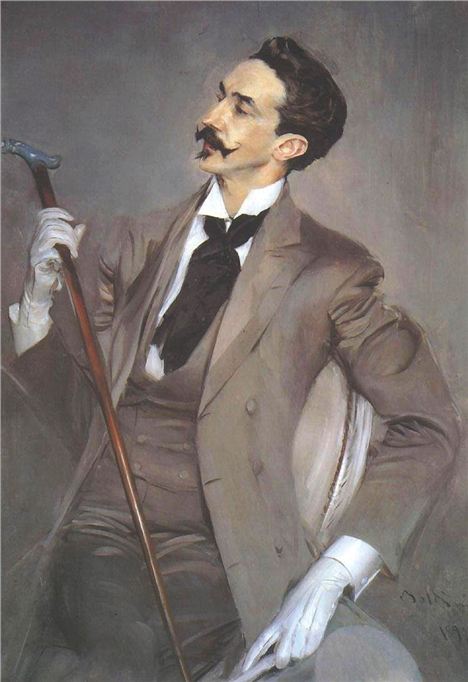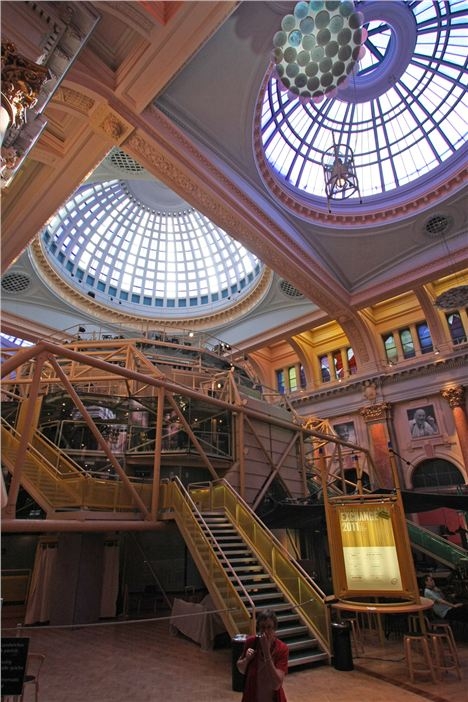I HAVE always had a fascination with the Fin de Siècle.
You sometimes have to remind yourself that these are students, still perfecting their craft. That is part of the joy of watching an RNCM concert - youth, enthusiasm, brimming with romantic ideals
As I student I consumed Zola and Rimbaud and would drift off into an imagined world which would find me wandering along the banks of the Seine, drinking at the Moulin Rouge with Toulouse-Lautrec, living big, dreaming dreams, writing great novels, hosting salons ... oh you get the idea. I know, young and daft but I still love Paris and the art, music and writing of the Belle Époque so the programme for RNCM's Day of Song really appealed.
The final concert, Fin de Siècle: The Voice of Europe at the end of the 19th Century was a culmination of an entire day dedicated to the music of the era, a greatest hits of European music from the 1890s. It made me wish I had been to more of the day. Due to the on-going refurbishment of the concert hall at the RNCM the concert shifted to the set of the current Royal Exchange production of, Much Ado About Nothing. The musicians seemed to enjoy the intimacy of the space and it helped to set the mood nicely: you could have been in a dining room or salon, which was fitting.
The last years of the nineteenth and the first years of twentieth centuries saw art in uproar across all fields. These were interesting times when artists were searching for the new ways to express their individuality. It was the birth of modernity; in with the lieder, down with the symphony. There was a desire to make music less pompous, more accessible to the masses and well…shorter.
A Fin de Siècle type contemplating his individuality and musing on just what it means to be 'modern'
The socio-political context is interesting and the RNCM offered up Dr Francis Toase to give some historical overview, he offered up his insights in a manner reminiscent of Sir David Attenbourgh – which was a little odd but pleasing nonetheless. So you got the music, a lesson in history, and a first class Attenborough impression, something for everyone.
A bit like the programme.
It was a solid mix of the best of the emotive and magnificently Romantic (Strauss and Elgar) with lighter and more cabaret works (Chabrier and Lehmann). These were, on the whole, well handled by the RNCM musicians. Although singers, especially sopranos, ripen with age - and I prefer my Strauss delivered by a weather beaten, been round the block a bit, dramatic soprano.
You sometimes have to remind yourself that these are students, still perfecting their craft. That is part of the joy of watching an RNCM concert - youth, enthusiasm, brimming with romantic ideals (probably), strolling the banks of the Seine (maybe).
A couple of sopranos shone a little brighter than the others, Catrin Woodruff and Lauren Fielder displaying emotional intensity and maturity. Occasionally at the RNCM you spot a real star in the making like the tenor, Kang Wang (main picture above), who, even though he was only there as part of a quartet, delivered the stand out performance of the evening.
The day culminated with Strauss' Four Leider. In Rhun, Meine Seele we are told ‘these are overwhelming times, they distress the heart and mind, forget all that troubles you’. Music can help with that; nothing like a nicely sung bit of Strauss to help you forget all that troubles you.
The concert took place on 27 April. RNCM are still looking for money to help with the concert hall refurbishment. You can find out more here.
The Royal Exchange














